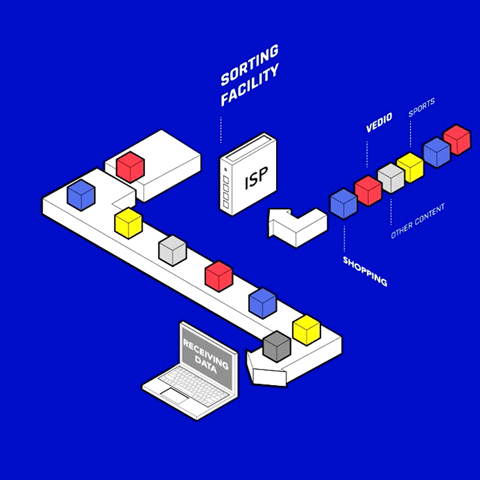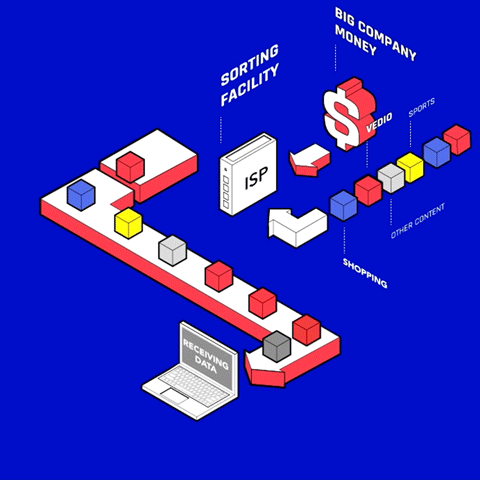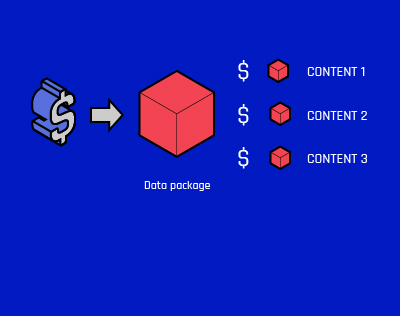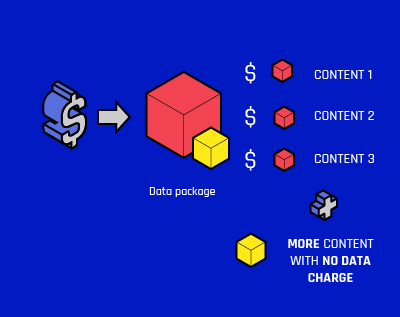The Internet is born as an equal connection system, providing access to online contents. Every website has always had an equal treatment in order to allow indiscriminate access to online contents. Network neutrality is the principle that all Internet traffic should be treated equally. But, have recentely tryied to influence access to the web contents. With Net Neutrality, Service Providers sell Data packages in accord to what has been required by users. If there wasn’t Net Neutrality, Service providers would create a power elite in giving back contents. Companies pay Service Providers to give priority to their websites. In this way, ISPs determine which websites are accessible for the user and in which order they upload. Service Providers can decide to create different plans depending on which service they offer. If users want to access those websites or applications, they will pay more.
Without Zero Rating
With Zero Rating


RESOURCE:New York Times | 2017
Previous facts
The concept of network neutrality has been around long before the current debate on the Internet. Issues related to the telegraph led to network neutrality’s debate. Problems about neutrality have concerned the Internet since the web has been used by the commercial companies. It happened during 21st century, the debate born after the internet spread. It was born in the United States and moved later to Europe. In 2010, Chile was the first country with a specific Regulation about Net Neutrality. All over 2014, public opinion knows what was going on. Starting from that year, some demonstrations took place in America and in Europe. Over last years, developing countries, such as India, enforced their presence on Internet based issues.

